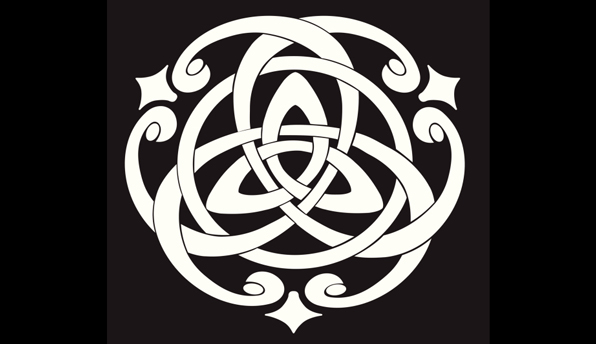

Libertarians believe a better world is possible. Libertarian anarchists believe the best world is a stateless one; it consists of voluntary societies which would include institutions or customs to prevent and deal with occasional crime. The practical application of voluntaryism – an insistence that all human interaction be voluntary – is the way to get there because it creates the innovations, institutions and lifestyles upon which anarchism can build.
But one practical approach has been largely ignored: voluntaryist anthropology.
Anthropology is the comparative study of the development of human societies throughout history. I first encountered the term "anarchist anthropology" in the pamphlet "Fragments of an Anarchist Anthropology" (2004) by the left-wing anthropologist David Graeber. Anthropology could make unique contributions to anarchist social theory, he argued, by examining a series of social structures and comparing their success. Similarly, voluntaryist anthropology could make significant contributions to libertarian-anarchist social theory by studying the dynamics of stateless or near-stateless cultures.
The Lesson of Celtic Ireland
The most commonly cited example of a near-stateless society is ancient Celtic Ireland, circa 650 to 1650 A.D. Ireland's heyday roughly corresponds to the Dark Ages in Europe, circa 500 to 1500 A.D. Rome had fallen to Germanic hordes who destroyed archives of knowledge and centers of civilization. Both culture and the economy stagnated. (Note: Recent scholarship questions some historical assumptions about the Dark Ages.)
How The Irish Saved Civilization: The Untold Story of Ireland's Heroic Role from the Fall of Rome to the Rise of Medieval Europe is a best-selling and reasonably acclaimed book by Thomas Cahill. One of its main themes: During the Dark Ages, European civilization and culture was preserved by Irish clergy and scribes who transcribed and maintained entire libraries of otherwise 'lost' Greek and Latin books.
During the same time, significant aspects of Celtic Ireland verged on being stateless. The society was far from perfect; for example, there was slavery. But important institutions were anarchic, such as the administration of common justice. A leading scholar on Irish linguistics and Celtic Irish law, Daniel Anthony Binchy (1899–1989) stated, "there was no legislature, no bailiffs, no police, no public enforcement of justice" and "the State existed only in embryo." That embryo was the presence of a large number of elected kings who ruled over an estimated 150 small kingdoms. Although royal courts existed, Binchy claimed they dealt only with "state issues" such as treason. He continued:
Irish law…shows how a legal system based, not on State sanctions, but on the power of traditional custom, formulated and applied by a learned professional caste, could function and command obedience. Of course there was often lawlessness, particularly in times of revolt and disputed succession, but even in our modern society, with its public sanctions, laws are constantly broken…
A systematic presentation from a voluntaryist view of this or any other private justice system would be fascinating. If the study exposed flaws, then it would only be valuable to those who want to learn from the mistakes of others.
And it would provide a counter-argument to the frequent contention that free-market justice could only exist in primitive cultures, not advanced ones. The voluntaryist Mark Stoval explained: "This was a society where not only the courts and the law were largely libertarian, but they were basically anarcho-capitalist in the modern sense of the phrase. This Celtic society was not some primitive society or tribe but rather it was a highly complex society. Ireland for centuries was the most advanced, most scholarly, and most civilized society in all of Western Europe. And all without a government!….Meditate on that fact for a moment."
The Lesson from a Man Named Clastres
A society that functions well without a coercive state is a challenge to the assumptions upon which many base their definition of civilization. For example, Hobbes argued that a society left to nature would be at "warre, where everyman is Enemy to every man." This claim has exerted great power for centuries; it has justifies]d the state because, without it, there allegedly would be nothing but an ongoing slaughter.
The work of French anthropologist Pierre Clastres (1934-1977) offers a refutation. Clastres's best-known research was conducted in what is now Paraguay and it explored the theme of a state-less society. In his Society Against the State: Essays in Political Anthropology (1974), he analyzed the structure of customs of the Guayaki tribes who eschewed political leadership as the West knows it. Tribal chiefs were only able to negotiate with each other as spokesman for the interests of their own tribes. A chief had no power to impose personal authority directly upon his own tribe. Ones who did could expect to be violently removed.
Clastres's work also offers a caution to all political anthropologists, including voluntaryists. The standard definition of a "primitive" society is based partly upon the simplicity of its social institutions. But Clastres criticized the tendency of some colleagues to view state-less societies as "primitive" in a derogatory way because they were stateless. He wrote:
What the statement says … is that primitive societies are missing something – the State – that is essential to them, as it is to any other society: our own, for instance. Consequently, those societies are incomplete; they are not quite true societies – they are not civilized – their existence continues to suffer the painful experience of a lack – the lack of a State – which, try as they may, they will never make up. Whether clearly stated or not, that is what comes through … ; society is inconceivable without the State; the State is the destiny of every society. One detects an ethnocentric bias …. In effect, each one of us carries within himself, internalized like the believer's faith, the certitude that society exists for the State. How, then, can one conceive of the very existence of primitive societies if not as the rejects of universal history … ?
The caution here: Every researcher needs to be as careful as possible about the assumptions and biases he brings to a field, especially one in the 'soft' social sciences. The best that can be done, perhaps, is to state any self-conscious bias bluntly and then try to report all of the observed facts without selectivity.
But Could It Happen Today?
A common current objection to statelessness is that society is now too technologically or otherwise complex to operate on its own.
The opposite is true. Modern society is too complex for the state to operate. Just one reason: The state offers a one-size-fits-all solution to all situations. Its solution is to use force or threat of force to achieve a centralized goal of its own design. The existence of complexity, diversity and constant flux means that individuals need to turn on a dime with innovative and equally diverse solutions. It means decentralizing power is essential, and down to the level of each individual.
A strong movement toward anarchism is also more likely today because the definition of society has and is changing. Society used to rely heavily upon such factors as geography and shared kinship. Instant global communication is now the norm for people to form communities based on shared interest and to do so anonymously.
The voluntaryist revolution is here. It is not an armed uprising. The revolution resides in every action that denies power and relevance to the state. Every alternative to the state and to their cronies drives it forward: a private bank account, a refusal to register, a "tiny house," an encrypted email, private self-defense, a single barter exchange, the anonymous use of cash, homeschooling … The voluntaryist revolution that leads in the direction of anarchism is not controlled by a grand collective but a glorious individualism.
Conclusion
A systematic exploration of the dynamics of stateless or near-stateless societies, cultures and institutions would be invaluable, n ot merely as a way to examine the strengths and pitfalls of different approaches but also to answer fundamental objections to freedom.
I recently read one such objection on a forum I frequent.
[M]any other ancient tribes (according to anthropological record) had absolutely NO HIERARCHY, nothing resembling a state, and were completely voluntaryist …. So we have a system in which individual freedom isn't hampered by any involuntary contracts enforced with violence, yet there is still a large group of people ready to take care of you if you fall ill and lose your wealth. So it's not necessarily the trade-off that you portray it as.
The best way to demonstrate something can work is to demonstrate it has. That would be the role of a voluntaryist anthropology that candidly admits both its own bias and any problems found in societies it studied.
